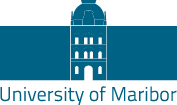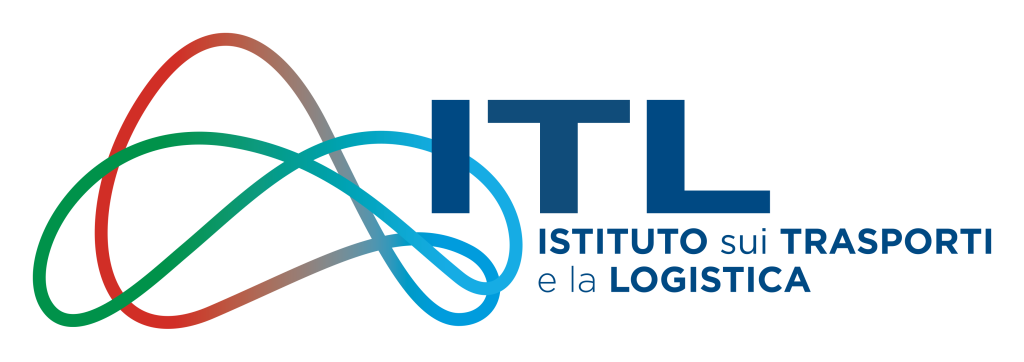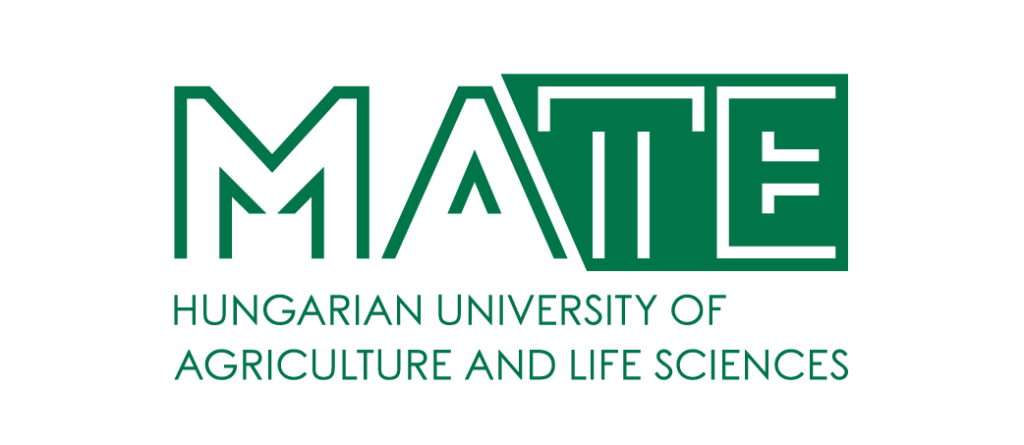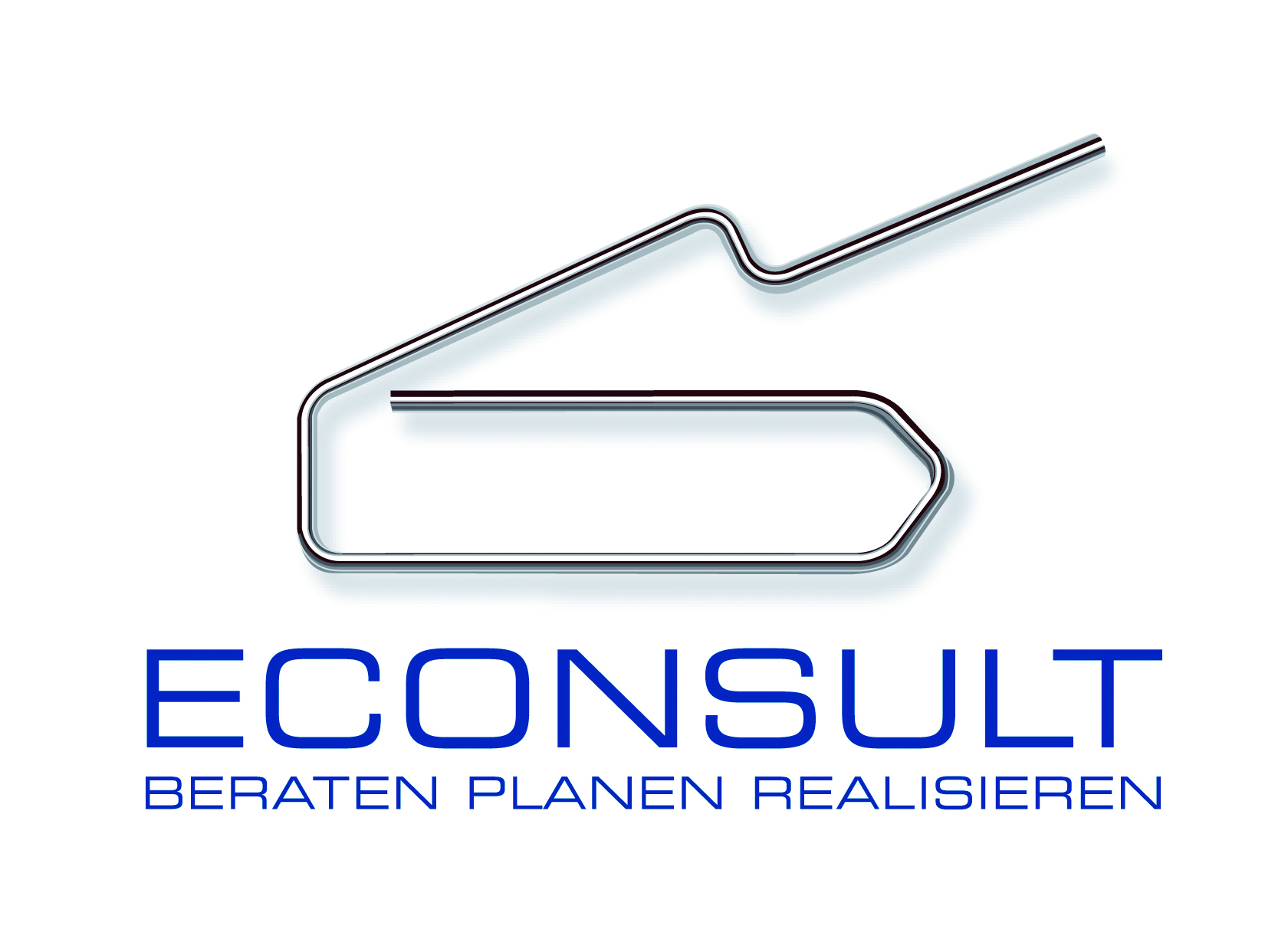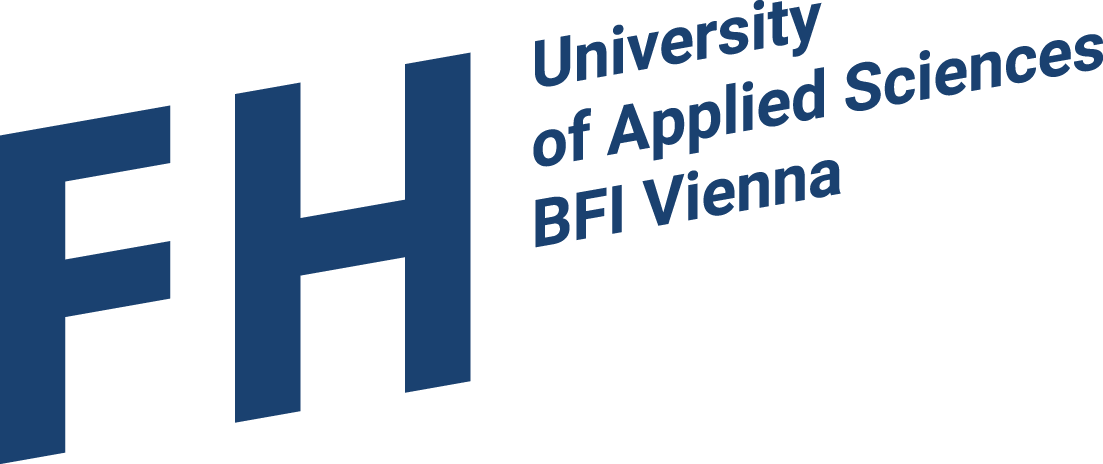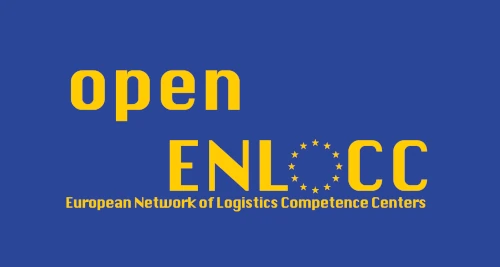Plattformen und Innovation Hubs
Wissenstransferplattform
Die Wissenstransferplattform (WTP) ist essentiell, um die Logistik der Alternativem Lebensmittelnetzwerke (AlNs) in Zentraleuropa (CE) voranzutreiben.
ALNs stehen - unabhängig davon ob es kleine oder mittlere Produzenten sind - aufgrund ihres innovativen Charakters und der Art ihrer Tätigkeit häufig vor Herausforderungen im Bereich der Logistik.
Diese Plattform setzt in folgenden Bereichen an:
- Wirksame Strategien und Maßnahmen in allen Ländern zur Unterstützung spezifischer Logistikoperationen von ALNs,
- Erleichterung des Austauschs bewährter Verfahren und
- Beschleunigung der Einführung von Logistiklösungen.
Die Hauptziele der WTP sind:
- Vermittlung von Kenntnissen im Bereich der kurzen Lebensmittelversorgungskette (SFSC). Dazu gehören Logistiklösungen und Geschäftsmodelle.
- Präsentation von Best-Practice-ALNs.
- Förderung neuer Erkenntnisse und des Austauschs neuer Praktiken im Bereich kurzer Lebensmittelversorgungsketten (SFSC).
- Schaffung einer interaktiven Plattform, die es den Benutzern ermöglicht, sich mit den Inhalten zu befassen (Ausbildungskurse, Zertifizierungen etc.).
Die WTP bietet:
- Einblicke in die Geschäftsmodelle von ALNs, insbesondere in diejenigen, die sich als effektiv und effizient erwiesen haben.
- Verständnis der Hauptmerkmale und Herausforderungen von kurzen Lebensmittelversorgungskette und den damit verbundenen Logistiklösungen.
- Effiziente Logistiklösungen, die von ausgezeichneten ALN als Best Practices identifiziert wurden, wie z. B.:
- Informationssysteme,
- Digitalisierung von Logistikprozessen,
- Erweiterte Liefer-/Bestellprinzipien,
- Konsolidierung von Lieferungen,
- Optimierung der Fahrzeugroutenführung,
- Gemeinsame Nutzung von Logistikeinrichtungen,
- Gängige Verpackungslösungen,
- Optimierung des Energieverbrauchs,
- Integrative Geschäftsmodelle für systematische Resilienz und
- Verschiedene Planungs-, Entwicklungs- und Recyclingmodelle.
Die Hauptvorteile von WTP sind:
- Verbesserter Wissensaustausch: Erleichtert den Transfer von Logistikwissen und Best Practices zwischen ALNs, Forschern, Wirtschaftsexperten und politischen Entscheidungsträgern.
- Verbesserte Logistikeffizienz: Bietet Logistiklösungen, die auf die Bedürfnisse von ALNs zugeschnitten sind und so ihre betriebliche Effizienz und Wettbewerbsfähigkeit verbessern.
- Unterstützung lokaler Lebensmittelproduzenten: Unterstützt lokale Lebensmittelproduzenten und ALNs direkt durch den Zugang zu fortschrittlichem Logistikwissen und praktischen Lösungen.
- Nachhaltigkeit und Resilienz: Fördert nachhaltige Praktiken und integrative Geschäftsmodelle.
- Transnationale Zusammenarbeit: Fördert die transnationale Zusammenarbeit und ermöglicht so den Austausch von Ideen und die gemeinsame Entwicklung innovativer Lösungen.
Matchmakingplattform
Alternative Lebensmittelnetzwerke (ALNs), die auf regionalen Bezugsquellen, nachhaltigen Arbeitspraktiken und ethischen Grundsätzen basieren, gewinnen zunehmend an Bedeutung. Gleiches gilt für die nachhaltige Logistik in kurzen Lebensmittelversorgungsketten. Um die Zusammenarbeit innerhalb der ALNs sowie zwischen ALNs und Logistikern zu verbessern, braucht es effiziente Wege, um die wichtigsten Akteure miteinander zu vernetzen. Die Matchmakingplattform, entwickelt im Rahmen des Food4CE-Projekts, übernimmt genau diese Aufgabe. Sie fungiert als digitale Schnittstelle zwischen Landwirten, Verbrauchern, Logistikdienstleistern und Online-Plattformen im Bereich nachhaltiger Lebensmittel. Ihr Ziel: eine effizientere und ressourcenschonendere Logistik.
Die Matchmakingplattform dient als zentrale Schnittstelle, um Landwirte, Verbraucher, Logistikdienstleister und Online-Plattformen miteinander zu verbinden. Sie fördert den Austausch von Erfahrungen, erleichtert gemeinsame Projekte und unterstützt die Entwicklung neuer Logistiklösungen und Geschäftsmodelle.
Die Matchmakingplattform ist ein dynamisches Zentrum, das die Akteure in ALNs sowie die Logistikunternehmen verbindet, stärkt und unterstützt. Sie ermöglicht direkte Kontakte, optimiert Logistikprozesse und nutzt Online-Marktplätze, um ein lebendiges und effizientes Ökosystem zu schaffen. Durch diese Vernetzung tragen Landwirte, Verbraucher und die gesamte Lebensmittelbranche gemeinsam zu einem nachhaltigeren und gerechteren Ernährungssystem bei.
Innovationszentren
Im Rahmen des Food4CE-Projekts werden 5 regionale und 1 transnationale Innovation Hubs (IH) entwickelt. Ziel der Innovation Hubs ist es, Akteure aus verschiedenen Sektoren zusammenzubringen, um alternative Lebensmittelnetzwerke (ALNs) in Mitteleuropa voranzubringen. Innovation Hubs werden den Wissenstransfer zwischen Forschern, Wirtschaftsexperten, Lebensmittelproduzenten, Logistikunternehmen und politischen Entscheidungsträgern ermöglichen und so ein einzigartiges gegenseitiges transnationales Unterstützungsnetzwerk für ALNs schaffen. Mit Unterstützung von OpenENLoCC werden die Innovation Hubs auch nach Projektende aktiv bleiben. Teile der regionalen Innovation Hubs werden in die Dienstleistungen von Organisationen integriert, die Unternehmen unterstützen (regionale Entwicklungsagenturen, Handwerkskammern, Forschungseinrichtungen oder regionale Lebensmittelzentren usw.).
Regionale Innovation Hubs werden zum übergeordneten Ziel beitragen, den Wissenstransfer, die Mitgestaltung von Innovationen und die Förderung verbesserter ALNs in Mitteleuropa zu fördern.
ORbITaLA (Slowenien)
Der ORbITaLA Innovation Hub (IH) ist eine dynamische Plattform, die entwickelt wurde, um einige der dringendsten Herausforderungen anzugehen, mit denen alternative Lebensmittelnetzwerke (ALNs) in Slowenien konfrontiert sind – Digitalisierung, fortschrittliche Logistik und Transport. Durch die Förderung von Zusammenarbeit, Innovation und praktischer Problemlösung bietet der Hub den Stakeholdern die Werkzeuge und das Fachwissen, die sie benötigen, um ihre täglichen Herausforderungen bei der Lieferung von Waren an ihre Kunden zu meistern.
Anhand von Best-Practice-Beispielen, maßgeschneiderten Lösungen und persönlicher Unterstützung bringt das ORbITaLA Experten aus dem Logistiksektor und der Forschung zusammen, um mit ALNs zusammenzuarbeiten und daran zu arbeiten, diese Herausforderungen effektiv zu bewältigen. Praktische Workshops, Co-Creation-Sitzungen und Beratungsdienste stehen im Mittelpunkt dieses Ansatzes und stellen sicher, dass die Lösungen nicht nur innovativ, sondern auch umsetzbar und relevant sind.
Der ORbITaLA Innovation Hub hat sich zum Ziel gesetzt, Sloweniens führendes Schulungs- und Beratungszentrum für ALNs zu werden, ihr Wachstum in jeder Entwicklungsphase zu unterstützen und den Weg für eine nachhaltigere und effizientere Zukunft in den Lebensmittelversorgungsketten zu ebnen.
Beirat: Regionale Agentur für Entwicklung Podravje – Maribor; Fakultät für Bauingenieurwesen, Verkehrsingenieurwesen und Architektur; Ministerium für Landwirtschaft, Forstwirtschaft und Ernährung; Fakultät für Agrar- und Lebenswissenschaften; Kammer für Land- und Forstwirtschaft Sloweniens (KGZS) – Institut für Land- und Forstwirtschaft Maribor; Genossenschaft Dobrina; Post von Slowenien.
Kontaktinformationen
| IH-Leiter: | RDA Podravje Maribor |
| Adresse: | Pobreška cesta 20, 2000 Maribor (Slowenien) |
| Art: | Virtuell & physisch |
| Öffnungszeiten: | Online: jeden Tag. Live: Mittwoch, 8:00 – 13:00 |
| Kontaktdaten: | mag. Danijela Kocuvan, danijela.kocuvan@rra-podravje.si |
Austrian Future Food Connective Innovation Hub (Österreich)
Der österreichische Future Food Connective Innovation hub dient als dynamische Plattform für die Vernetzung verschiedener Stakeholder und ermöglicht es ihnen, Herausforderungen gemeinsam anzugehen und ihre Abläufe durch interaktive Problemlösungen zu verbessern. Diese Prozesse sind in die Wissenstransferplattform (WTP) integriert und stellen so die Ausrichtung auf breitere Innovations- und Entwicklungsziele sicher.
Zu den wichtigsten Akteuren gehören Hochschul- und Forschungseinrichtungen und der österreichische Fachhochschulsektor sowie innovative KMUs und Organisationen zur Unterstützung von Unternehmen wie die Wirtschaftskammer Wien (WKW). Darüber hinaus arbeitet die Plattform eng mit öffentlichen Institutionen zusammen – von lokalen Akteuren wie den Stadtwerken über regionale Behörden bis hin zu nationalen Einrichtungen wie dem Bundesministerium für Klimaschutz, Umwelt, Energie, Mobilität, Innovation und Technologie.
Durch die Förderung der Zusammenarbeit zwischen diesen Sektoren zielt der Austrian Future Food Connective Innovation Hub darauf ab, nachhaltige Innovationen voranzutreiben, Stakeholder-Netzwerke zu stärken und zur Entwicklung wirkungsvoller Lösungen für die Region beizutragen.
Beirat: Fachhochschule BFI Wien; ECONSULT; Wirtschaftskammer Wien; Bundesministerium für Österreich – Klimaschutz, Umwelt, Energie, Mobilität, Innovation und Technologie.
Kontaktinformationen
| IH-Leiter: | Fachhochschule des BFI Wien (FH BFI) |
| Adresse: | Wohlmutstraße 22, 1020 Wien (Austria) |
| Art: | Virtuell |
| Öffnungszeiten: | Online: Montag – Donnerstag, 10:00 – 16:00 Uhr |
| Kontaktdaten: | David Strauß, David.Strauss@fh-vie.ac.at |
Localog (Italien)
Der Localog Innovation Hub (IH) setzt sich für die Förderung der Zusammenarbeit zwischen Alternativen Lebensmittelnetzwerken (ALNs) und anderen Interessengruppen ein, um ein nachhaltiges und widerstandsfähiges regionales Lebensmittelsystem voranzutreiben. Zu den Hauptzielen gehören die kontinuierliche Unterstützung von ALNs bei ihrem Wachstum und ihrer Weiterentwicklung sowie die Förderung der Entwicklung von Kooperationsinitiativen und innovativen Projekten, die zu einem langfristigen systemischen Wandel beitragen.
In seiner Anfangsphase wird sich der IH darauf konzentrieren, die spezifischen Bedürfnisse von ALNs zu identifizieren, ein Umfeld des Vertrauens und der Zusammenarbeit zu schaffen sowie Schulungen und maßgeschneiderte Unterstützung anzubieten. Sie wird daran arbeiten, bewährte Verfahren und innovative Lösungen, insbesondere in den Bereichen Logistik und Geschäftsmodelle, zu ermitteln und zu fördern und gleichzeitig die Interessenträger durch einen partizipativen Prozess einzubeziehen, um einen umfassenden regionalen Aktionsplan zu entwickeln.
Mit Blick auf die Zukunft sieht sich der IH vor, eine Schlüsselrolle bei der Gestaltung einer gemeinsamen Vision für ein nachhaltiges und widerstandsfähiges Lebensmittelsystem zu spielen. Sie wird den Fortschritt der ALNs weiterhin engagiert unterstützen und ihnen helfen, Herausforderungen zu meistern und Chancen zu ergreifen. Der IH wird auch der Konzeption und Umsetzung von Kooperationsinitiativen und -projekten Vorrang einräumen, die das regionale Lebensmittelökosystem weiter stärken und so langfristige Wirkung und Nachhaltigkeit gewährleisten.
Beirat: Institut für Transport und Logistik – Bologna; Gemeinde Bologna; GD Landwirtschaft / GD Mobilität – Region Emilia Romagna; Food Hub Srl; CAAB Bologna; Kunst-ER; Clust-ER Agrar- und Lebensmittelindustrie.
Kontaktinformationen
| IH-Leiter: | Stiftung Institut für Transport und Logistik (ITL) |
| Adresse: | Viale Aldo Moro 38, Bologna (Italy) |
| Art: | Virtuell & physisch |
| Öffnungszeiten: | Online: Montag – Freitag, 10:00 – 17:00 Uhr |
| Kontaktdaten: | Lorenzo Cello, lorenzo.cello@fondazioneitl.org |
FOOD4Health (Ungarn)
Der FOOD4Health Innovation Hub (IH) setzt sich dafür ein, die Wettbewerbsfähigkeit von Produzenten und Verarbeitern zu verbessern, indem er ihre Marktchancen erweitert und eine stärkere Integration, Digitalisierung und Bildung fördert. Ihre Mission ist es, das Management von landwirtschaftlichen Produkten entlang der Lebensmittelwertschöpfungskette durch fortschrittliche digitale Tools und datengestützte Entscheidungsfindung zu optimieren.
Der IH wird eine umfassende Palette von Dienstleistungen anbieten, darunter Datenmanagement-, Automatisierungs- und Kommunikationslösungen. Durch den Einsatz dieser Technologien sollen die Interessengruppen in die Lage versetzt werden, fundierte, datenbasierte Entscheidungen zu treffen und so die Effizienz und Innovation im gesamten Agrar- und Lebensmittelsektor zu fördern.
Beirat: Institut für Lebensmittelwissenschaft und -technologie; CIBUS Hungaricus; Landwirtschaftsministerium; Institut für Agrarökonomie; Ungarische Landwirtschaftskammer; SmileyMed GmbH; Ungarischer Verband für Logistik, Einkauf und Bestandsverwaltung
Kontaktinformationen
| IH-Leiter: | Ungarische Universität für Landwirtschaft und Biowissenschaften (MATE) |
| Adresse: | Villányi út 29-43, H-1118 Budapest (Hungary) |
| Art: | Virtuell & physisch |
| Öffnungszeiten: | Online: jeden Tag Live: Friday, 8:00 – 13:00 |
| Kontaktdaten: | Géza Hitka, PhD, Hitka.geza@uni-mate.hu |
PULS Innovation Hub (Polen)
Der PULS Innovation Hub (IH) widmet sich der Förderung von Innovation und Nachhaltigkeit im Agrar- und Lebensmittelsektor, indem er die wichtigsten Herausforderungen und Chancen beleuchtet. Zu den Zielen gehören die Entwicklung umfassender Geschäftspläne, die Durchführung von Rentabilitätsanalysen, die Optimierung der Produktionsintensität – sei es durch Erhöhung, Verringerung oder Umstellung auf umweltfreundlichere Praktiken – und die Bewertung der Nachhaltigkeit landwirtschaftlicher Betriebe. Darüber hinaus konzentriert sich der IH auf die Bewertung und Reduzierung von Logistikkosten, um die Effizienz kurzer Lebensmittellieferketten zu steigern.
Ein Kernaugenmerk des IH liegt auf der Identifizierung der Stärken und Schwächen von landwirtschaftlichen Betrieben, die in kurzen Lebensmittelversorgungsketten tätig sind. Durch die Analyse dieser Dynamik zielt das Zentrum darauf ab, die Gesamteffizienz zu verbessern, die Rolle kurzer Lieferketten im Agrar- und Lebensmittelsektor zu stärken und deren Wettbewerbsfähigkeit zu steigern. Eine der wichtigsten Prioritäten ist die Förderung einer stärkeren Integration und Zusammenarbeit zwischen den Akteuren, die an kurzen Lieferketten beteiligt sind, um ein kohärenteres und widerstandsfähigeres Ökosystem zu schaffen.
Beirat: PULS; L-GRUBE; Landwirtschaftliches Beratungszentrum in der Woiwodschaft Großpolen; AgroIntegracja Sp z o.o.; Abteilung für Landwirtschaft und ländliche Entwicklung im Marschallamt der Woiwodschaft Großpolen; Vertreter der Versuchsbetriebe, die zu PULS gehören; Bank des Kredits Agricole; CSCMP – Rat der Fachleute für Lieferkettenmanagement; Fresh Logistics Polska; Top Bauernhöfe.
Kontaktinformationen
| IH-Leiter: | Naturwissenschaftliche Universität Poznan (PULS) |
| Adresse: | Wojska Polskiego 28, 60-637 Poznań (Poland) |
| Art: | Virtuell |
| Öffnungszeiten: | Online: Montag (12:00-14:00) und Mittwoch (10:00-12:00) |
| Kontaktdaten: | Alina Nowotarska, alina.nowotarska@up.poznan.pl |
Food4CE TIH
Ziel des Transnational Innovation Hub (TIH) ist es, den Wissensaustausch und die Unterstützung zwischen den teilnehmenden Ländern zu erleichtern. Als kollaborative Plattform wird es den Austausch von Erfahrungen, Best Practices und Bedürfnissen über nationale Grenzen hinweg ermöglichen und das kollektive Wissen erweitern. Darüber hinaus wird der TIH ein einzigartiges Netzwerk zur gegenseitigen Unterstützung bereitstellen, das die Zusammenarbeit zwischen regionalen IH der verschiedenen Länder fördert, um gemeinsame Herausforderungen anzugehen, Erkenntnisse auszutauschen und die Gesamtfunktionalität der ALNs zu verbessern. Durch die Förderung von Integration und Zusammenarbeit bringt der TIH Interessengruppen aus verschiedenen Ländern zusammen und fördert so eine breitere Perspektive und die Einführung innovativer Lösungen auf transnationaler Ebene.
Kontaktinformationen
| TIH-Leiter: | OPEN ENLoCC |
| Adresse: | Avenue Louise 146, 1050 Bruxelles (Belgium) |
Über das Projekt und das Interreg Programm Central Europe
Projekt Food4CE
Food4CE ist ein europäisches Projekt, das vom Interreg Programm Central Europe kofinanziert wird und darauf abzielt, Alternative Lebensmittelnetzwerke (ALNs) bei ihren Bemühungen, um die Schaffung nachhaltiger und widerstandsfähiger Lebensmittelversorgungssysteme zu unterstützen. ALNs spielen eine wichtige Rolle bei der Förderung kurzer Lebensmittelversorgungsketten und der Verringerung des CO2-Fußabdrucks bei der Lebensmittelversorgung der Bürger. Trotz ihrer Bedeutung stehen ALNs vor Herausforderungen wie mangelndem Wissen über logistische Zusammenarbeit, unzureichender Digitalisierung und ineffizienten Lieferstrukturen.
Innovationen für eine grünere Zukunft
Food4CE stellt sich diesen Herausforderungen mit regionalen und transnationalen Innovations-Hubs. Diese bringen ein vielfältiges Expertenteam zusammen – darunter Wissenschaftler, Unternehmer, Lebensmittelproduzenten, Logistik- und Transportdienstleister sowie politische Entscheidungsträger. Gemeinsam entwickeln sie innovative Werkzeuge und Lösungen, um die Logistik in ALNs effizienter und nachhaltiger zu gestalten.
Politische Unterstützung
Neben innovativen Instrumenten wie Matchmaking- und Wissenstransferplattform wird Food4CE auch gemeinsam entwickelte regionale Aktionspläne für jede teilnehmende Region und transnationale (CE) politische Leitlinien für die ALN-Unterstützung bereitstellen.
Weitere Informationen finden Sie auf unserer Projektwebsite.
Projektpartner
Die Universität Maribor wird transnationale Aktivitäten durchführen und die Beteiligung aller Interessengruppen an Food4CE unterstützen. Es wird auch Studien- und Forschungsaktivitäten entwickeln und zur Entwicklung, Umsetzung und Überwachung von Strategien und Pilotmaßnahmen beitragen, um Wissen, Erfahrungen und bewährte Verfahren im Bereich der Logistikoperationen für alternative Lebensmittelnetzwerke (ALNs) zu sammeln. Darüber hinaus wird die Universität Maribor RRA Podravje – Maribor direkt bei der Umsetzung des Innovationszentrums für den logistischen Wissenstransfer und das Matchmaking von Interessenvertretern unterstützen, indem sie eine Plattform für den Wissenstransfer und das Logistik-Matchmaking bereitstellt.
Im Rahmen des Food4CE-Projekts wird RDA Podravje – Maribor für die Bereitstellung der Methodik und die Unterstützung der Partner bei der Einrichtung regionaler Innovationszentren und der Mitgestaltung des transnationalen Innovationszentrums verantwortlich sein. Nabe. Dank ihres umfangreichen Wissens und ihrer Erfahrung in der Zusammenarbeit mit lokalen Produzenten wird RRAPM Veranstaltungen und Aktivitäten mitgestalten, die die tatsächlichen Bedürfnisse und Herausforderungen der Gründung von AFNs aufzeigen, die später in regionale Aktionspläne zur Unterstützung von ALFNs aufgenommen werden.
Das ITL wird die notwendige Unterstützung für die AFN-Politik und den strategischen Planungsrahmen leisten. Nach einer ersten Phase der Kartierung, Klassifizierung und Kontaktaufnahme mit bestehenden AFNs und anderen relevanten Akteuren in der Region Emilia-Romagna wird das ITL ein regionales Innovationszentrum einrichten und verwalten. Ziel dieses Innovationszentrums wird es sein, die Logistikkompetenzen der AFNs zu verbessern, innovative Lösungen in Zusammenarbeit zu fördern, gemeinsame Aktionspläne und politische Leitlinien zur Unterstützung der AFNs zu entwickeln.
Die Hauptaufgabe von MATE besteht darin, die Projektpartner mit ihrem Wissen im Bereich der Landwirtschaft zu unterstützen, indem sie die Identifizierung und Klassifizierung bestehender ALNs in Europa koordinieren. Darüber hinaus wird MATE den Innovation Hub einrichten und verwalten und die Pilotaktion in Ungarn entwickeln. MATE wird auch zur Entwicklung der Wissenstransferplattform und der Matchmaking-Plattform beitragen.
Łukasiewicz-PIT spielt eine transversale und transnationale Rolle im Food4CE-Projekt und trägt zur Analyse der bestehenden AFNs in Europa, ihrer Merkmale und Bedürfnisse sowie ihrer logistischen Best Practices bei. L-PIT wird dazu beitragen, den Weg zum strategischen Planungsrahmen zu ebnen und ein regionales Innovationszentrum in Polen und dessen Pilotbetrieb mitzugestalten.
Durch die langfristige Zusammenarbeit mit landwirtschaftlichen Erzeugern und Verarbeitern von landwirtschaftlichen Produkten wird PULS den Entwicklungsstand der ALNs in Polen ermitteln und bewerten. Darüber hinaus wird PULS den Innovation Hub in Polen verwalten und ein transnationales Netzwerk von Innovationszentren mitgestalten.
Im Rahmen von Food4CE wird ECONSULT den Prozess der Abbildung von ALN-Logistiklösungen und Best Practices leiten. Darüber hinaus wird ECONSULT die Projektpartner mit seinem Wissen und seiner logistischen Expertise bei mehreren anderen Aufgaben unterstützen, darunter die Methodik zur Abbildung von Best Practices, die Entwicklung einer Wissenstransfer- und Matchmakingplattform und schließlich die Entwicklung regionaler Aktionspläne zur Unterstützung von ALFNs.
Die FH BFI Wien wird die Entwicklung der Wissenstransferplattform (WTP) leiten. Als Leiter der Aktivität wird sie eng mit der Universität Maribor bei der Entwicklung und Erprobung der WTP und seiner Implementierung zusammenarbeiten. Darüber hinaus wird die FH BFI Wien in enger Zusammenarbeit mit ECONSULT den Innovation Hub in Wien aufbauen und betreuen. Schließlich wird die FH BFI eine zentrale Rolle bei der Identifizierung und Analyse von ALNs in Österreich spielen und dabei helfen, ihre logistischen Bedürfnisse und Best Practices zu verstehen.
OPEN ENLoCC ist führend bei der Verbreitung und Verwertung von Projekten. Aus diesem Grund ist sie an allen Aktivitäten beteiligt, die darauf abzielen, die Ergebnisse im mitteleuropäischen Raum zu nutzen, zu kommunizieren, zu teilen und zu nutzen. Es verfolgt alle Projektergebnisse direkt, um die Partner in Kommunikationsfragen zu unterstützen, und kümmert sich dank der Expertise der regionalen Kompetenzzentren um die Entwicklung spezifischer Ergebnisse aus technischer Sicht. Darüber hinaus wird OPEN ENLoCC einen transnationalen Innovationshub einrichten, in dem alle regionalen Innovation Hubs zusammengeführt werden.
Interreg Programm Central Europe
Interreg CENTRAL EUROPE ist ein Förderprogramm der Europäischen Union, das die transnationale Zusammenarbeit unterstützt.
Interreg begann 1990 als kleine grenzüberschreitende Initiative und hat sich zu einem der wichtigsten Finanzierungsinstrumente der EU für die regionale Entwicklung entwickelt. Zwischen 2021 und 2027 werden rund 10 Mrd. EUR auf fast 100 Interreg-Programme aufgeteilt, um Kooperationsprojekte zu finanzieren, die zu einem stärkeren und besseren Europa für alle beitragen.
Die Interreg-Gemeinschaft bietet drei Arten von Programmen zur Unterstützung von Projekten der europäischen territorialen Zusammenarbeit an:
- Grenzübergreifende Programme für die Zusammenarbeit zwischen mindestens zwei Ländern, die dieselbe Grenze haben.
- Transnationale Programme (wie Interreg CENTRAL EUROPE) für die Zusammenarbeit zwischen Regionen aus mehreren europäischen Ländern.
- Interregionale Programme für die Zusammenarbeit in ganz Europa.
Weitere Informationen zu Interreg Central Europe finden Sie auf der Website des Unternehmens.



